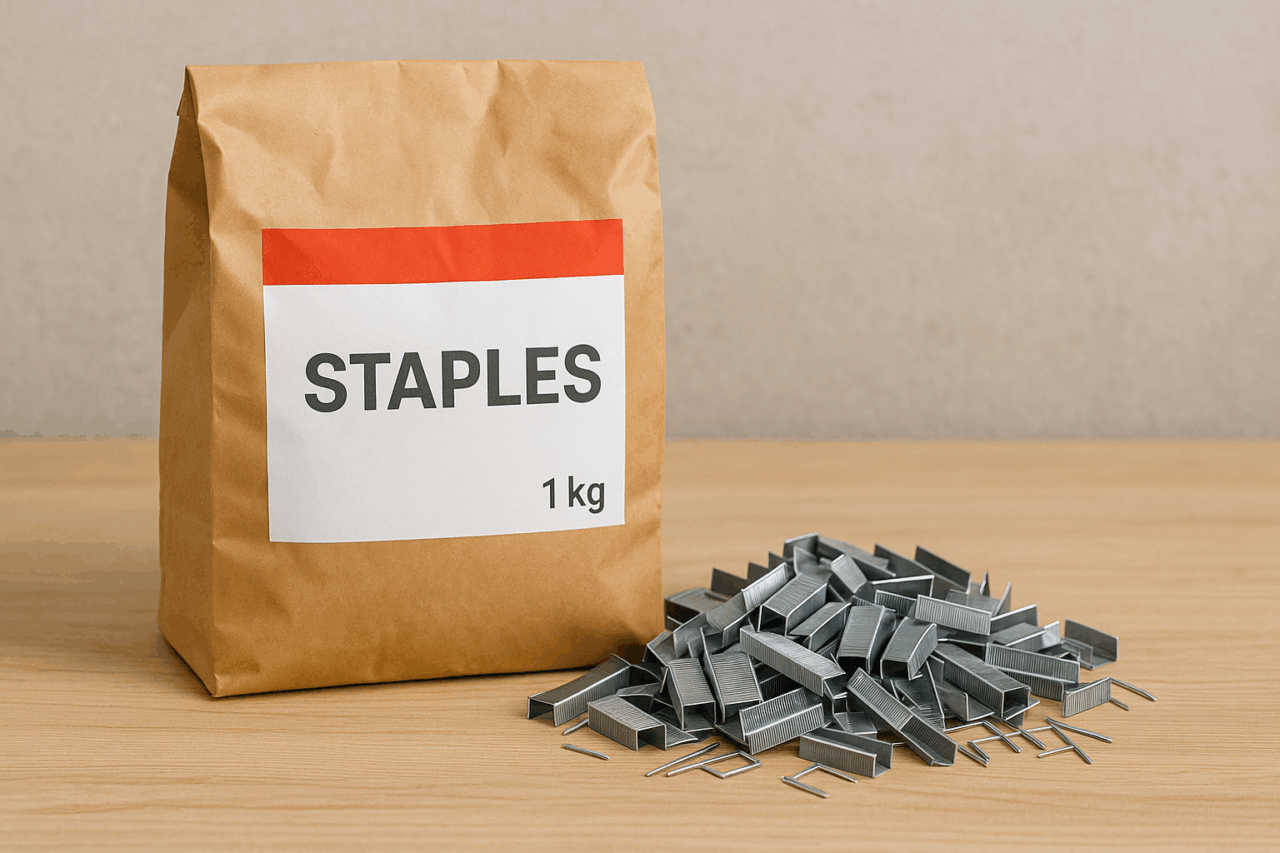In the grand tapestry of office supplies, the humble staple might not immediately spring to mind as a heavyweight contender. However, when we talk about a Staples (1 kg), we’re diving into a realm where practicality meets peculiarity. Imagine this: a kilogram of staples. That’s roughly 10,000 individual staples! Picture a disco ball made entirely of staples, each reflecting the light like a tiny mirror ball from Studio 54. Intriguing, right?
The Answer to the Question
Now, to cut through the office supply mystery, a Staples (1 kg) weighs exactly… 1 kilogram. Yes, it’s a question that seems to answer itself, but the beauty lies in the details. A standard staple typically weighs about 0.1 grams, meaning a kilogram of these metallic fasteners contains a whopping 10,000 staples. So, while the answer might seem straightforward, the journey to understanding the sheer volume of 1,000 grams of staples is a delightful detour.
A Brief History and the Importance of Knowing the Weight
The staple has an illustrious history that dates back to the 18th century when King Louis XV of France needed a way to fasten documents. Fast forward to the industrial age, and we find the modern staple—a triumph of mass production and office efficiency. Knowing the weight of staples, especially in bulk, is crucial for industries that rely on precise shipping calculations and inventory management. It’s akin to knowing how much vinyl records weigh when you’re DJing a 70s-themed party; every gram counts towards getting the right groove.
Weighing staples might seem trivial, but consider this: in the world of logistics, every kilogram can tip the scales between profit and loss. And for the environmentally conscious, understanding the weight and quantity can help reduce waste, ensuring that each staple is used wisely. So, the next time you reach for that stapler, remember, you’re not just fastening papers—you’re connecting with a piece of history, meticulously weighed and measured, one staple at a time.

Comments (0)
There are no comments here yet, you can be the first!